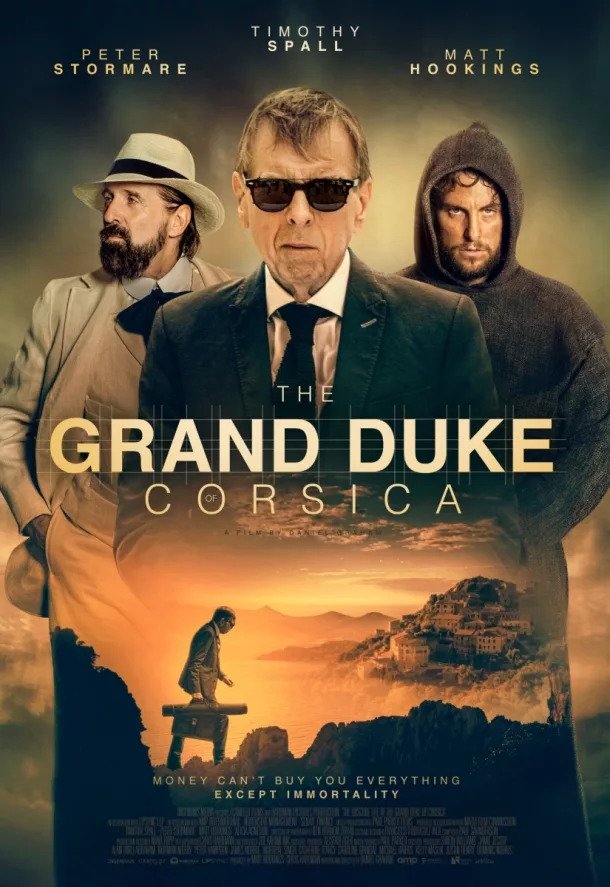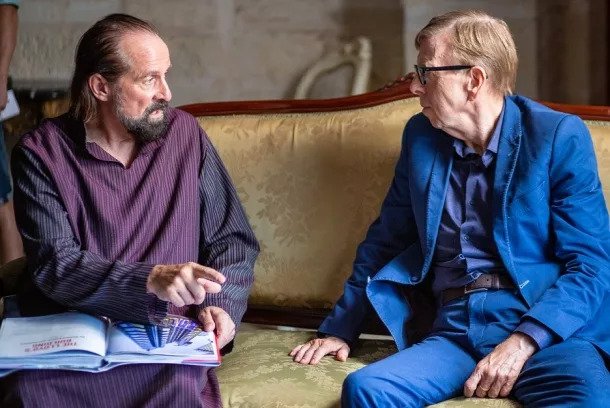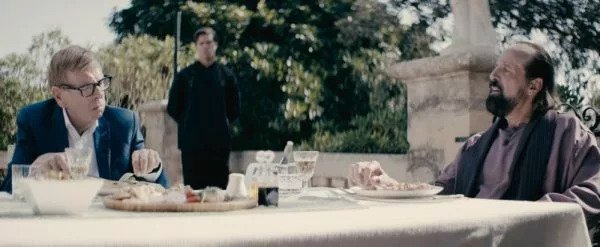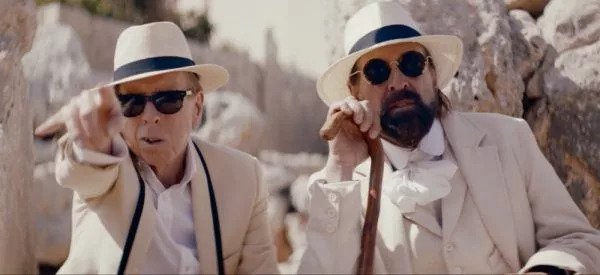
Directed by Daniel Graham.
Starring Timothy Spall, Peter Stormare, Matt Hookings, Alicia Agneson, Noeleen Comiskey, Lucy Martin, Tim Cullingworth-Hudson and James Mackie.
SYNOPSIS:
Alfred Rott (Timothy Spall) is an architect of some renown. Curmudgeonly, cantankerous and callously working class, he is retained by the Grand Duke (Peter Stormare) to build a monument in Corsica.

There are shades of Peter Greenaway in Daniel Graham’s meditation on life, love and architecture. Timothy Spall and Peter Stormare make an intriguing double act as a foul mouthed architect and eccentric billionaire recluse. However, that everything around these two fine actors feels a little bit woolly and philosophical is a big problem.
The Obscure Life of the Grand Duke of Corsica rarely feels cohesive, but gets by on sumptuous locations and cinematic ambiguity. As Alfred Rott, Timothy Spall plays a curmudgeonly veteran of the pen and ink who has done it all. His fees are extravagant, his demeanour abrasive, but his knowledge boundless. If Daniel Graham has nailed anything, it exists on screen in this human conundrum.
Rott is driven by what drives his clients not the buildings he designs. He strives for abstract inspiration in between the liberal use of profanity and sexual pursuit. A contradiction which engages the audience even when everything is struggling for narrative relevance. However, Peter Stormare as the Grand Duke is another proposition altogether.

Swathed in a thin veneer of decadence and waited on by his coterie of staff, this performance is more about mood than making an impact. Drifting around his vast estate spouting obscure dialogue, it is hard for him to establish a viable identity. Pre-occupied with his own demise in the wake of a deadly global virus, Peter Stormare skates very close to caricature without really crossing over.
Daniel Graham’s film is closest to The Belly of an Architect, if audiences were looking for a Peter Greenaway touchstone. A Palme d’Or winner in 1987 which was also driven by art, architecture and human frailty. Unfortunately, Daniel Graham’s film falls short in comparison to the aforementioned masterclass, playing out instead like a series of interconnected scenes meandering towards a muted conclusion.
Elsewhere digressions and narrative tricks which touch on Francis of Assisi also fail to hit home. Matt Hookings is both the actor and personification of Assisi on screen. Unfortunately, both elements of his performance feel adrift when compared to his Corsican cohorts, even though he is supposed to be a central inspiration for Alfred Rott. A fact which means that The Obscure Life of the Grand Duke of Corsica never achieves its lofty intentions.

Atmosphere, location and philosophical navel gazing were never going to be believable substitutes for substance. There is no denying that Daniel Graham is driven by a need to dissect the human condition in all its infinite permutations, yet here his arguments are lost amongst a sea of ideas and intermittent momentum.


